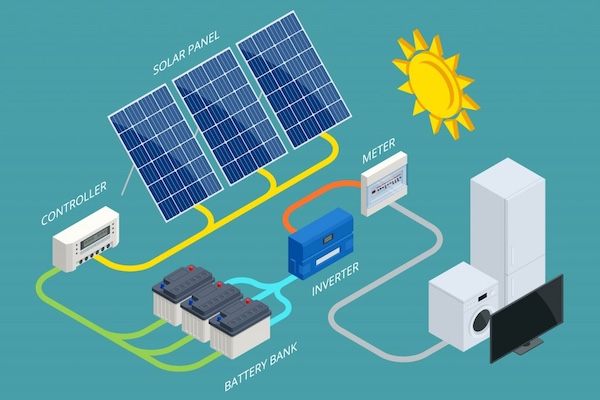Jim Beam column:Solar energy takes centerstage
Published 6:45 am Saturday, August 31, 2024

- Solar energy has been given a cool reception in Calcasieu Parish and extra time has been given to give residents more information.(Photo courtesy of ESD Solar).
While solar energy is being embraced in many parts of the country, the Louisiana Illuminator in an Aug. 26 report said it hasn’t enjoyed the same warm welcome in Louisiana. That was clearly evident at a recent meeting of the Calcasieu Parish Planning and Zoning Board.
The board met to take action on a request for an exception to an agriculturally zoned property of about 3,600 acres that would allow a solar panel farm. The crowd was so large the board deferred the item until Nov. 19 to allow more time for the solar panel company to have additional meetings with people in the community.
The Legislature held a meeting recently of the joint House committees on Agriculture and Natural Resources to discuss solar energy development. The Illuminator reported that the hearing was “rife with misinformation, unsubstantiated statements and contradictory data.”
Trending
The Illuminator describes itself as an independent, nonprofit, nonpartisan news organization driven by its mission to cast light on how decisions are made in Baton Rouge and how they affect the lives of everyday Louisianans, “particularly those who are poor or otherwise marginalized.”
The news agency said it researched some of the most noteworthy claims made at the legislative hearing to determine their accuracy and provide factual evidence to support or refute them.
It wasn’t surprising that Mike Strain, state commissioner of agriculture, made some of the claims at the meeting. One major complaint against solar farms is that they consume too much farmland and that will affect the ability to supply the food needed around the world.
Strain and others said the state’s food supply is dwindling because people are eating more food than is produced.
The Illuminator said although some studies indicate the world could run out of food by as early as 2050, the problem isn’t the fault of the solar industry.
“Rather, it is primarily the result of unsustainable farming practices, wasteful eating habits and, to some extent, climate change,” the Illuminator said.
Trending
Greg Upton, director of LSU’s Center for Energy Studies, said even if Louisiana built enough solar farms to replace every other source of energy in the state — a virtually impossible scenario — those solar farms would still only take up a little over 1% of the state’s land.
Strain said federal subsidies for renewable energy create an unlevel playing field in favor of that energy over oil and gas. The Illuminator said that is “mostly false and misleading.”
The news agency said Louisiana has received $156 million in federal solar subsidies under the Inflation Reduction Act, the major source of federal clean energy funding. It said data from the Louisiana Department of Revenue shows that amount is small when compared with the roughly $1.6 billion in state tax subsidies that Louisiana hands out to the oil and gas industries and offers as incentives for the purchase of oil and gas products each year.
State Rep. Danny McCormick, R-Oil City, asked about using natural gas to produce cheaper electricity but said it’s being shipped overseas and utility companies are being forced to buy renewable energy.
The Illuminator said that is false. Upton said oil and gas markets are largely unaffected by increasing solar development. He said solar electricity isn’t a direct competitor to oil and gas companies that make most of their money on the global market.
McCormick said throughout the meeting that wind and solar industries would effectively collapse if not for federal subsidies because renewable energy costs much more than fossil fuels.
The Illuminator said McCormick refused to accept the testimony of Upton that utility-scale solar is the cheapest form of energy even without federal subsidies. McCormick said Upton’s department receives funding from the solar industry. Upton said the center receives a lot of money from oil and gas companies, too.
Offshore wind began undercutting all fossil fuels by significant margins in 2014, the Illuminator said. A 2024 study showed utility-scale solar joined wind at the top of the affordability rankings a few years later, and they remain nearly tied with each other for being the cheapest forms of electricity — 33% lower than natural gas — even without government studies.
Solar energy is a cheaper and good source of electricity and concerned citizens need to get more accurate information on the subject. The full Illuminator report can be found at https://lailluminator.com/2024/08/26/solar-energy/
Jim Beam, the retired editor of the American Press, has covered people and politics for more than six decades. Contact him at 337-515-8871 or jim.beam.press@gmail.com.





